Contraindications and indications for dental implants
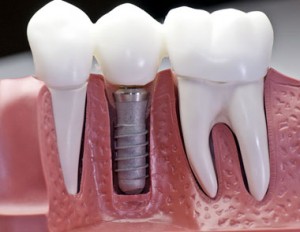
Any surgical intervention, as a rule, has certain indications and contraindications.
Modern implantology considers the installation of implants necessary only if there are strictly defined indications for this.
The implantation is considered appropriate when other orthopedic methods did not give a specific result.
The success of the operation is determined by the presence of indications and the absence of contraindications to its implementation.
Contraindications to dental implantation can be:
- Absolute and relative.
- Local and general.
- Temporary and permanent.
Contraindications and indications for the installation of implants are determined on the basis of history and examination.
An important role is played by the patient's psycho-emotional state.
Dental examination includes:
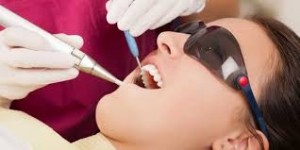
- Collection of dental history.
- Assessment of the condition of the mucous membranes of the oral cavity, the condition of the dentition and individual teeth, occlusion.
- X-ray examination of the dentition.
- Determination of the thickness of the oral mucosa at the site of the proposed implant placement and the thickness of the alveolar portion of the jaw.
Implant prosthetics have contraindications, some of which can be attributed to those that make surgery impossible.
Most often, preoperative measures and patient treatment can reduce the effect of contraindications or get rid of them, which makes the possibility of implantation successful.
Absolute contraindications to surgery are associated with health and can occur during the operation in the form of complications. Relative contraindications to implantation can be eliminated by the start of surgery as a result of corrective treatment.
Dental implantation, if there is an absolute contraindication to it, becomes impossible.
Video: “Dental implantation”
Contraindications
Absolute contraindications:
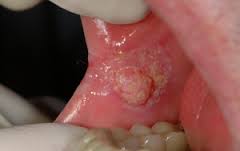
- Diseases of the blood and blood forming organs. If blood coagulation is impaired, surgery cannot be performed, due to the risk of severe bleeding.
- Mental illness of the patient.
- Oncological diseases. During implantation in malignant neoplasms, the risk of tumor growth and the formation of metastases increases.
- Connective tissue diseases (rheumatic and rheumatoid diseases, scleroderma, systemic lupus erythematosus).
- Impaired immune system.
- Tuberculosis disease and its complications.
- Inflammatory diseases of the mucous membranes of the oral cavity.
- Diabetes.
- Bruxism (grinding of teeth), increased tone of the masticatory muscles.
- HIV infection. Venereal diseases.
- Intolerance to anesthetics.
- Bone system disease. Osteoporosis.
- Endocrine diseases.
With metabolic disorders and hormonal failure, implant rejection may occur. Since in insulin-dependent diabetes, bone formation processes are disrupted, which makes the installation of implants impossible.
In the presence of absolute contraindications for surgery, you will have to choose a different type of prosthetics.
Relative contraindications:
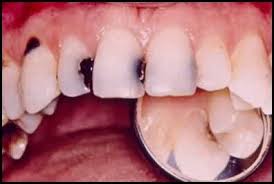
- Caries-affected teeth.
- Inadequate oral hygiene.
- Gum disease
- The presence of periodontitis.
- Arthrosoarthritis of the temporomandibular joint.
- The presence of a pathological bite.
- Atrophic changes or defects in the bone tissue of the alveolar process.
- Addiction, alcoholism, smoking.
- State of pregnancy.
Relative contraindications are categorized as easily removable. They are detected during the examination of the patient.
- Dentists advise to pay special attention to oral hygiene procedures several months before the upcoming implantation.
- It is undesirable to take aspirin and other blood-thinning drugs before surgery. Their intake should be excluded no less than a week before the upcoming intervention.
- Dental implants can be performed during pregnancy if there are no other contraindications. Surgery is not recommended if the gestational age is less than four months or more than six. Due to the unsafe effect of anesthesia on the fetus, it is better to postpone the implantation.
- Smoking and implantation are also incompatible. Smokers have a high probability of rejection of implants. Before the operation, you should stop smoking within 10-12 days.
Dental implants have common contraindications for installation:
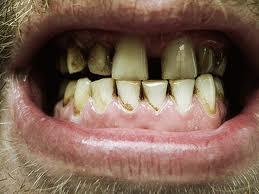
- The presence of an allergic reaction to pain medications.
- Somatic diseases in the patient (cardiovascular), which may worsen during the implantation procedure.
- The use of antidepressants, anticoagulants, cytostatics, immunosuppressants, and other drugs prescribed by other specialists.
- Mental disorders.
- Long-term stress state of the patient.
- Patient depletion (cachexia).
- Inadequate oral hygiene.
Local contraindications for the installation of dental implants:
- Insufficient quantity and quality of bone tissue at the implantation site.
- Irregular oral hygiene.
- Insufficient distance to the nasal and maxillary sinuses.
Contraindications for implantation, which are temporary in nature:
- The presence of acute diseases.
- The period of recovery and rehabilitation.
- State of pregnancy.
- After radiation therapy.
- Alcoholism and drug addiction of the patient.
Thus, dental implantation has a large number of contraindications, but only some of them make it impossible.
In the process of preparing the patient for surgery, it is possible to get rid of most of the contraindications and make possible dental implants.
Indications
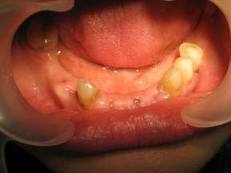
- Defects in the dentition (single, included, terminal).
- Complete lack of teeth.
- The inability to use a removable denture.
- Lack of closing teeth.
- Increased tooth abrasion.
Reviews
Dental implants are a real breakthrough in modern dentistry. Today, bridge prosthetics is rapidly being replaced by implant placement. An installed implant is no different from real teeth, both in sensations and aesthetic indicators. Considering contraindications for dental implants, unpleasant consequences can be avoided. Patient reviews on the installation of implants can be either positive or negative:
- 5 days ago, a 5 tooth implant was implanted to me. On the second day, my temperature rose to 38 degrees.Today, the seam is covered with white coating. The pain is not strong.
- I got an implant on my upper jaw a month ago. Within 11 days, bleeding stopped. On day 15, cheek swelling appeared, it is dense, painful. Asymmetry of the face is observed, the corner of the mouth is omitted and a slight speech impairment has appeared.
- He put the implant 6 years ago. There were a lot of problems. The implant is mobile from the very beginning to the present.
- Two implants were implanted in the area of chewing teeth. The implantation procedure lasted no more than 20 minutes. After the operation, I felt great, no pain, no swelling. At night I took a ketorol pill to relieve a little tension in the area of the installed implants. The next day, there was only a slight feeling of pressure, which passed on the third day.
- The implantation operation took about 20 minutes. I did not feel any pain. When the anesthesia passed, a slight aching sensation appeared, took pain medication. The next day I went to work, there was a feeling that they were doing something in the gums, but there was no pain.
- I was put in the upper jaw 3 implants for about 20 minutes. And after a month - they put another 4 implants - on the lower. I didn’t even think that this is possible. Fast and almost painless.
- She removed a tooth two years ago. Nearby, the teeth were healthy and didn’t really want to grind and depulpate them. The implantation was a long time. She thought it was a rather painful and unpleasant operation. When I installed the implants, I was very surprised how painless the entire procedure for installing the implant was.